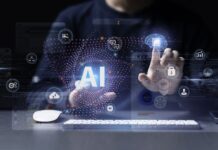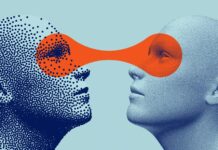By Graham Mills, Co-founder and Managing Director of Techspert
“In the midst of every crisis, lies great opportunity.”
Einstein’s famous quote should really ring true right now. And yet, from place to place and person to person, views appear to differ radically over what precisely the ‘great opportunity’ is, or ought to be.
In fact, one of the major learnings of the COVID-19 crisis thus far is how difficult it has proven to reach a consensus on any aspect of the pandemic. Different nations have each responded to the crisis in their own way, and within most territories there’s been significant debate, disagreement and dispute over the optimal way to ‘flatten the curve’, protect the economy, safeguard health systems, mitigate civil unrest – and much more besides.
The evidence of this divergence of expert opinion is everywhere: whether to embark on partial or total lockdown, when to close schools, whether to force certain businesses to shut their doors (and how to compensate them for their losses). Even in areas where there has been something approaching consensus – for example, the sporting world – outliers such as the Belarusian Premier League have defiantly bucked the trend and kicked off its new football season.
What this boils down to is a question of who to trust. In our world of social media bubbles, fake news and misinformation, this was already a major challenge. Now, even though governments, institutions, businesses and the public at large are all clamouring for authoritative expertise on how to respond to the crisis, we’re still struggling to alight at the best answers and outcomes.
The truth is that, for some time now, conventional methods of knowledge-sharing have been insufficient to meet the demands of our increasingly fast-paced and globalised community.
It was once posited that the internet would revolutionise (and democratise) knowledge-sharing. In fact, the volume of information has completely overwhelmed us, while our access to much of this information is via tech platforms that have their own vested interest in what we see and don’t see.
Consequently, organisations with big decisions to make are finding themselves having to draw upon an incredibly limited pool of expertise – who they’ve worked with before or who’s in their existing professional network, rather than who is genuinely the best qualified, the most up-to-date on research or academically at the forefront.
The fallback position is ‘who they know’ rather than ‘who they need’.
This issue has now been crystallised at a societal level by the pandemic. However, it is a problem that has long been endured across the business world – by organisations that have embarked on troubled M&As, or that have encountered unanticipated challenges in a new market, or that have launched new drugs, or health foods, or skin products, only to find that the science or evidence behind them is flawed.
Even our governments struggle to access the very best expertise at moments that are genuinely ‘life and death’. So, what hope is there for businesses attempting to navigate these challenging conditions and make the right calls on the critical strategic choices that could define their prospects for years to come?
My belief is that the answer lies with artificial intelligence (AI) – although not in the way that you may perhaps think.
After all, there’s been a tendency in recent years to badge AI as a miracle cure for all business woes. In some quarters, it has been over-hyped and over-sold to such an extent that businesses now view AI solutions with caution.
I’d argue that this distrust has, in large part, been caused by vendors promising ‘intelligence’ as an end in of itself – making decisions for us rather than helping us to make better decisions. In contrast, the genuinely brilliant applications of AI to date have been those that involve huge volumes of data processing in order to deliver time and efficiency improvements many magnitudes greater than similar manual, human-powered processes. Rather than AI that is designed to replace human cognition (which is still many years from fruition), what we’re talking about here is AI that does our legwork for us, in a way that’s speedy, precise and intelligent.
When viewed in this light, it’s easy to see how AI can serve as a solution to the current problems we’re experiencing around global knowledge sharing. We don’t need AI to replace our world’s leading experts; we need AI to make them easier and quicker to find.
Deployed in this context, AI technology can analyse and intelligently assimilate millions of data points in seconds to pinpoint and profile the people who are truly at the coal face of any given topic. Furthermore, it can then track these data points over time to accurately map the ever-changing nature of global expertise. Or to put it another way, the leading expert a few years – even weeks – ago might not be at the top of the game today. While conventional knowledge-sharing systems won’t necessarily recognise or reflect this, AI tools are far better equipped to spot real-time change in status or reputation.
To take COVID-19 as case in point, new studies and data are being published on an hourly basis. The foremost authorities on the virus may actually be changing all the time. AI-based knowledge sharing tools can, for the first time, give organisations a clear view of who is the best source of knowledge and insight in even the most rapidly advancing fields.
Right now, coronavirus is an omnipresent threat from which no organisation is fully immune, but it is not the only challenge facing businesses today. As long as our systems for connecting and sharing knowledge remain manually operated and restrictive in nature, businesses will go on struggling to access the right expertise at the right moments, to the detriment of their strategic decision-making capabilities.
Ultimately, returning to profitability and prosperity in the post-COVID world is not going to be easy. However, AI offers us the potential to break open the ‘closed loop’ of expert search so that businesses, governments, health providers – anyone – can be precision-matched with leading authorities on any topic, at that particular time, anywhere in the world, giving us the opportunity to make better decisions at each stage of the recovery process.
About the Author
Graham Mills is Co-founder and Managing Director of Techspert, AI technology innovator that specialises in connecting businesses directly to the source of technical and market insights.
Prior to founding Techspert, Graham held venture capital roles with Johnson & Johnson Innovation and Seroba Life Sciences, before co-founding smoking cessation startup Abdicare.
A scientist by training, Graham completed his PhD in pancreatic cancer chemoresistance at the University of Cambridge and has also led a range of scientific R&D activities for both Genentech and Avidity Biosciences.



































